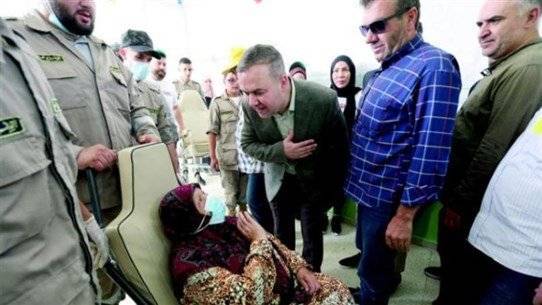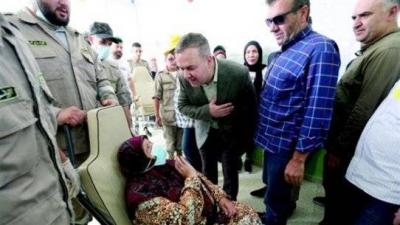In the southern Lebanese constituencies of the second and third districts, where the Shiite majority resides, a battle over representation has erupted between Hezbollah and the Amal Movement, led by Parliament Speaker Nabih Berri, within the same electoral list that brings them together as "permanent" allies in every election held in the southern regions. Typically, the party and the movement share all possible Shiite positions in the government, parliament, municipalities, and administration, making it an uneven battle against "rebellious" elements that do not comply with the two strategic allies.
However, the parliamentary elections usually take on a different dimension, concerning the power and influence of each party within the Shiite community, and this is reflected in the "preferential vote." Supporters of both parties vote for the entire list, while distinctions are made between them through the preferential vote.
Hassan, a supporter of Amal in the Nabatieh area (the third southern district), stated that he would not cast his preferential vote for his fellow townsman Nasser Jaber, but for "Abu Hassan Qubaisi," referring to MP Hani Qubaisi, who is competing for preferential votes with Hezbollah's parliamentary bloc leader, Mohammad Raad. He notes that although Jaber is President Berri's candidate, he will win regardless of the preferential votes he receives, and "we want to assert our presence."
The two districts are a major stronghold for the "Shiite duo," consisting of approximately 800,000 voters, around 500,000 of whom are in the third district, which includes the Shiite-dominated villages of Nabatieh and Bint Jbeil, as well as Marjeyoun, where there is weak Christian influence, and Hasbaya, which has a Druze majority lost in a sea of Shiite votes.
The "duo," which Lebanese people disagree on naming—supporters call it the "national duo," opponents label it the "sectarian duo," and neutral observers refer to it as the "Shiite duo"—sought to mobilize voters and increase turnout to prevent any breaches of their lists and secure the 18 seats available in the two districts, including two Christian seats, one Sunni seat, and one Druze seat.
Despite the opposition the "duo" faced within its supportive environment, the mobilization efforts from both sides resulted in many returning to "the sectarian house of obedience." Mohammad, a seventy-year-old man, mentioned while voting in one of Nabatieh's districts that he had been adamant about not voting, but he heard one candidate say they "wanted to liberate Imam Hussein from the Shiites," prompting him to decide to vote. Although the candidate's statement came from an old tweet that party supporters dug up and began circulating and distorting, it had a strong mobilizing effect, especially since Hezbollah Secretary-General Hassan Nasrallah dedicated part of his recent speech to discuss it, referring to the candidate as "the barren one" or "fool," which turned into a trending term on Twitter.
On the other hand, the opposite mobilization included distributing millions of liters of gasoline to supporters to encourage them to head south to vote. Each vehicle was allocated about 40 liters of fuel, worth over a million Lebanese pounds, which helped activate the voting process in the south.
While the situation in some districts in the south appeared normal, especially in those with a Christian majority, it was evident that the "duo" dominated the Shiite-majority areas, both through slogans and moving convoys and through the noticeable absence of opposition representatives at polling stations. This absence significantly limited any possible objections to the internal family dynamics of the electoral process, as the representatives and some heads of polling stations were from one side alone, something that one candidate fears may be reflected in the election results, as he complained about many refusing to act as his representatives, with some demanding high fees "instead of the insults they would face."
Thus, the only option left for the dissenters was to boycott, as was the case for Ahmed, a flower shop owner who opened his store despite the general closure. When asked why he did not want to vote, he sarcastically replied, "Which elections? The presidential elections, or the election of the UN Secretary-General?" He added, "We, the people of the south, were better off than those in Baalbek and the north. We received about 10 percent of the projects and services, while they received nothing."




